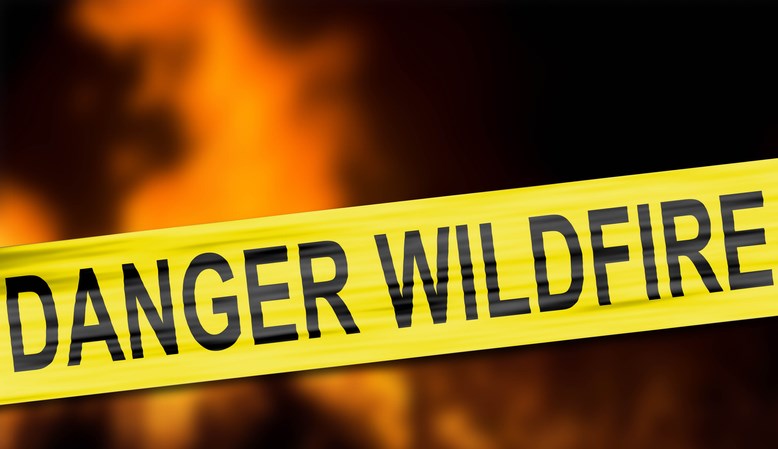REGINA - Saskatchewan Public Safety Agency has provided a new update for May 24 on the continued challenging wildfire situation in northern Saskatchewan.
According to Marlo Pritchard, SPSA President and Fire Commissioner, there are 24 active fires burning in the province as of Wednesday, up one from 23 the day before. There have been 185 active fires to date, compared to the five year average of 109.
Of those active fires, 13 are undergoing ongoing assessment, three are classified as contained, three are classified as protecting property and five are not contained.
Special air quality statements remain in effect through parts of northern and central Saskatchewan.
Fire ban is lifted
Due to the recent rainfall and cooler weather the SPSA has lifted the provincial fire ban in place since May 16. This had applied to all Crown lands, provincial parks, and the Northern Saskatchewan Administration District north of Highway 16.
Pritchard said provincial, parks and municipalities continue to have a high fire risk as an area north of the Churchill River did not get widespread rains. Northern municipalities and provincial parks in this area may potentially retain local fire and burn restrictions.
As for why the provincial fire ban was lifted, Pritchard acknowledged they had not gotten the heavy bands of precipitation north of the Churchill River, but noted those areas are not heavily populated. He said they will manage the fire risk with provincial parks continuing to look at burn bans and restrictions, and northern communities continuing to monitor and restrict activities related to fires in their communities. “That will resolve most of the potential for human causes fire starts without having that provincial ban in place.”
SPSA has deployed air scrubbers to numerous communities affected by wildfires including to Ile-a-la-Crosse, Beauval, Dillon, St. George’s Hill and Buffalo Narrows. Ten more air scrubbers are to be shipped and are expected to arrive in communities this week, with four of those being distributed to schools in Ile-a-la Crosse. These devices will allow those communities to shelter safely in place.
There remain highway closures at Highway 910 from 165 to Besnard Lake, and Highway 911 from 106 to Deschambault Lake. Again, at both locations signage has been set up by the Ministry of Highways and the ministry of Highways is staffing those barricades. In numerous other areas, Pritchard said, fires are in the vicinity of roads and highways visibility has been reduced due to smoke.
Wildfires of interest
The wildfires of note as of Wednesday include the following:
The Vermette fire is still currently 65,547 hectares in size located southwest of Dillon. The communities affected include Dillon, Saint George’s Hill and Michel Village. It is being resourced by Type One and Type Two and Type Three firefighters and heavy equipment and helicopters.
The Shaw Fire has grown to 133,113 hectares in size located between Buffalo Narrows and Ile-a-la-Crosse. The nearest community is Buffalo Narrows. It is being resourced by Type One and Type Two firefighters, heavy equipment, helicopters and air tanker support.
The Wistigo fire is still 62,766 hectares located southeast of Pinehouse. Type One and Two firefighters and Type Three support firefighters are resourcing the fire along with heavy equipment and helicopters.
The Sharp fire north of La Ronge is 9,845 hectares. It is being resourced by Type One and Two crews, helicopters, air tankers, and value protection work is continuing to occur in the Nemieben Lake area.
The KPIR-02 fire is still 4,605 hectares south of Deschambault Lake. It is being resourced by Type One crews, helicopter and air tanker support.
Latest on evacuation efforts
SPSA continues to support people evacuated from their communities with emergency crisis support, which includes clothing, food, shelter, and other services.
SPSA continues to support evacuees in Lloydminister and North Battleford on behalf of the Meadow Lake Tribal Council, with evacuees coming from Dillon, St. George’s, Michel Village, English River and Patuanak.
SPSA is also leading support for 81 evacuees in Regina from Buffalo River and Ile-a-la-Crosse, 112 evacuees in Lloydminster from Buffalo Narrows, and while there are still evacuees in North Battleford from Patuanak they do not have updated numbers in this report.
Regarding the efforts in North Battleford, SPSA’s Director of Emergency and Crisis Support Joan Hrycyk said they are supporting Patuanak and English River First Nation there. She said all of their sites are set up the same, with everyone provided with meals, supports and activities, and there are also supply rooms.
As for Regina, Hrycyk said 20 evacuees from Ile-a-la-Crosse are able to leave for home this afternoon due to their mandatory evacuation being lifted. That will leave 61 evacuees still in Regina.
As for precipitation, Vice-President of Operations Steve Roberts said most fires received little precipitation with the exception of the Meyak fire, which is now listed as contained.
The larger fires did get improved weather and light scattered showers, but Roberts said the heavier rain has “stayed south of those, towards Meadow Lake-Prince Albert-Hudson Bay bandwidth. So we still see improvements on those fires, but not the large amounts of change in the short term.”
Avoid certain areas
In a news release today, SPSA advises travellers, boaters and paddlers to avoid areas in and around the 23LX-Smith Fire and the 23LA-McCrae Fire until further notice. This includes highways, rivers and lakes in those areas.
SPSA states that the Smith Fire, located north of the Churchill River, is producing large amounts of smoke with poor visibility in the area. The McCrae Fire is located directly east of the Smith Fire and is described as large and fast-moving.
As well travel advisories for the Montreal River area near the Meyak Fire, and Besnard Lake near the Wistigo Fire, are still in effect.
For information on location and status of all wildfires, see the SPSA Active Emergencies map located at saskpublicsafety.ca.




